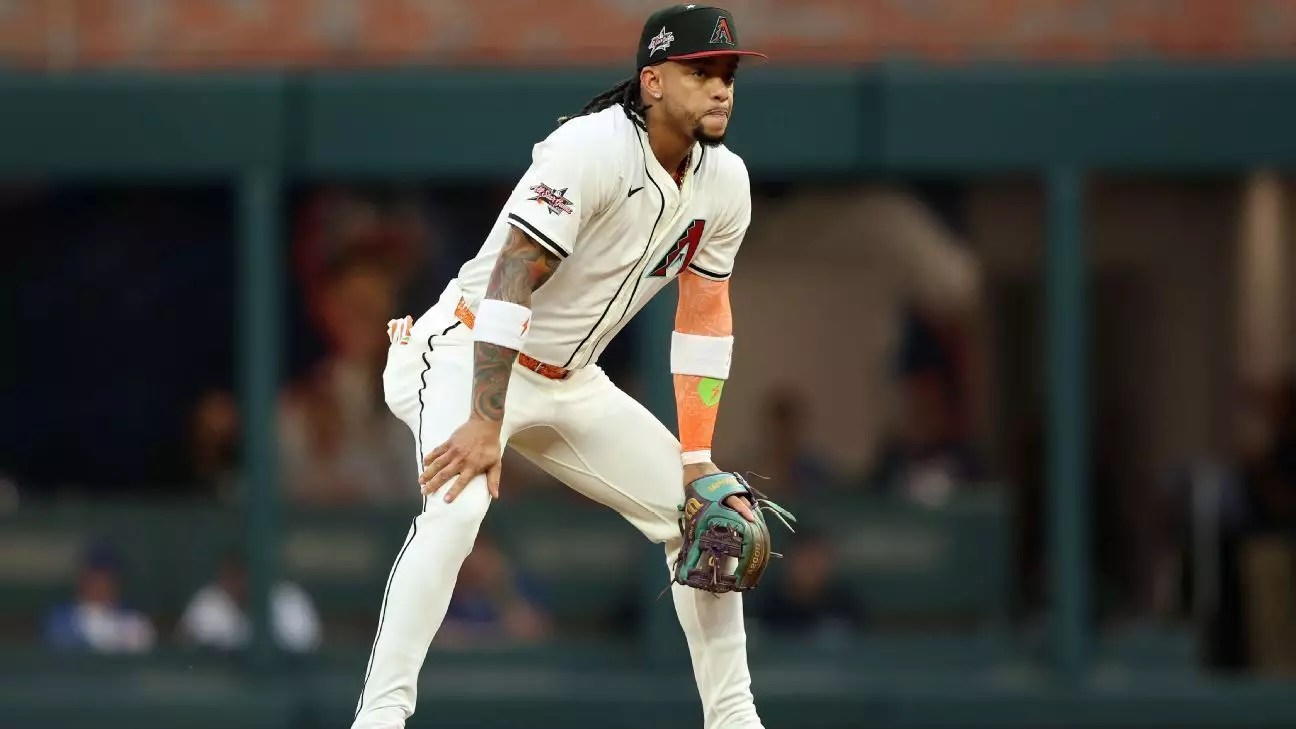In professional sports, greatness often overshadows the human struggles behind the scenes. Ketel Marte, a standout player for the Arizona Diamondbacks, exemplifies this dichotomy. His on-field performance this season has been nothing short of exceptional; his offensive numbers—batting .297 with 23 homers and 56 RBIs—highlight his value to the team. Yet, despite his remarkable stats, Marte’s narrative is clouded by controversy, criticism, and an apparent disconnect between his personal life and professional commitments. This contrast underscores a critical reality in sports: talent alone does not always translate into unwavering team loyalty or public perception.
Marte’s recent absence from the lineup after the All-Star break illuminates a larger issue often overlooked—the vulnerability of athletes outside the game. His admission of missing three games due to personal issues, including a burglary at his residence, reveals the emotional weight players carry. Such setbacks are seldom acknowledged in the relentless world of professional sports, where success is often measured solely by performance metrics. Marte’s transparent apology, conveyed through an interpreter, signals a significant step towards accountability, yet it also exposes the pressure athletes face to maintain an impeccable public image despite personal hardships.
Public Scrutiny Versus Personal Growth
What is particularly revealing about this scenario is the level of scrutiny Marte faces from the media and teammates alike. His absence has been scrutinized not just as a matter of professionalism, but as a potential catalyst for the team’s recent struggles. Critics argue that Marte’s inability to be consistently present on the field may have impacted the team’s momentum, especially during a crucial stretch before the trade deadline.
However, it is paramount to question whether the criticism is genuinely constructive or merely reflexive. Athletes are human, susceptible to mental health challenges, personal tragedies, and unforeseen circumstances. In Marte’s case, his injury history—particularly hamstring issues—provides a reasonable context for his missed games, yet the narrative seeks to personalize his behavior as a form of franchise discord or lack of commitment. This narrow view risks undermining the broader understanding that resilience, in all forms, should be celebrated, especially when players demonstrate transparency and a willingness to confront their vulnerabilities.
The True Measure of Dedication and Leadership
Marte’s coach and manager, Torey Lovullo, offers a nuanced portrait of the player—one that emphasizes his character over isolated incidents. Lovullo praises Marte not only for his performance but also for his integrity and team-oriented mentality. His comments highlight an essential truth: leadership in sports extends beyond just the scoreboard. It encompasses character, humility, and growth.
Moreover, Marte’s willingness to address the controversy publicly indicates a player committed to redemption and honesty. His open communication sets a precedent that athletes should be seen as complex individuals navigating challenges, not just as commodities evaluated solely by their stats. His trajectory calls for a broader cultural shift—one that encourages empathy and understanding rather than swift judgment.
While critics might argue that the team’s recent struggles are partly due to Marte’s absence, it’s worth considering whether enforced accountability and personal development could ultimately galvanize the team’s unity. The Diamondbacks’ decision to trade key players following their slump might reflect desperation rather than strategic clarity. Perhaps the focus should shift from assigning blame to fostering an environment where players like Marte can grow, learn, and serve as role models for resilience.
The Path Forward: Balancing Performance with Humanity
Ketel Marte’s story exemplifies the complex human tapestry woven into professional sports. His outstanding performance amidst adversity demonstrates that excellence is not solely dependent on numbers but also on the capacity to confront and overcome personal hurdles. For the Diamondbacks and organizations alike, his experience should serve as a catalyst for rethinking how athletic commitment is interpreted.
Moving forward, teams must foster environments where players feel supported in their personal struggles, recognizing that their well-being directly impacts their performance. Rather than penalizing moments of vulnerability, sports organizations should view them as opportunities for growth—an acknowledgment that resilience extends beyond physical fitness to emotional and psychological strength.
Marte’s journey underscores a vital lesson: true leadership is rooted in authenticity. Recognizing and addressing failures, setbacks, and personal issues with honesty isn’t a sign of weakness but a testament to character. As fans, critics, and fellow athletes, embracing this perspective could transform the culture of sports into one that values integrity, resilience, and human dignity just as much as victory.

